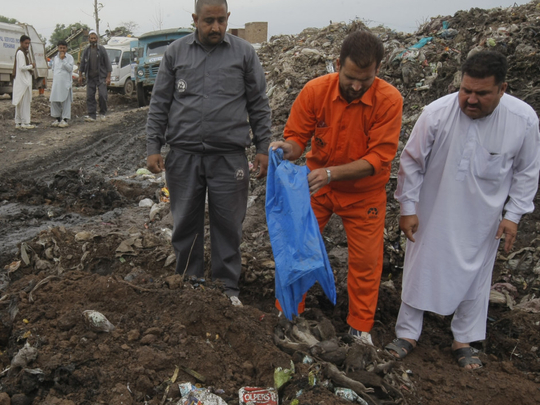
Peshawar, PAKISTAN: Man, these rats can really bite.
A public health crisis in one of Pakistan’s largest cities shows no sign of subsiding as “killer rats” continue their rampage, biting more than 400 people over the past month, officials at Lady Reading Hospital in Peshawar said this week.
In early April, The Washington Post reported how Peshawar was gripped with fear amid reports that supersize rats had infested the city, killing at least eight children over the past year.
The story read like a nightmare, but Peshawar officials quickly realised that this is a problem they won’t solve anytime soon.
Jameel Shah, a spokesman for Lady Reading Hospital, said the hospital has treated 423 patients for rat bites since April 1, including 23 on Tuesday. About half of the victims are children, Shah added.
Although Pakistan has not conducted a comprehensive census since 1998, Peshawar is estimated to have about 1 million residents. Going by that figure, one out of every 2,500 Peshawar residents was bitten by a rat in the past month.
New York, a city of 8 million that is also a haven for rats, usually registers about 100 rat bites each year, according to media reports.
That discrepancy between the two cities raises questions about whether all the reported cases in Peshawar really are related to rats.
No shield from the critters
But many poor Peshawar families sleep on floors or hastily built cots — and sewage lines often lead directly from poorly constructed houses into outdoor canals — so there frequently isn’t much separating rodents and humans.
Earlier this week, demonstrations erupted across the city as protesters demanded that local leaders do more to combat the problem, Express Tribune newspaper reported.
The demonstrators held up signs while chanting “Go chooha Go.” In Urdu, chooha means “rat.” The slogan appears to be a riff on a popular chant often used by political leader Imran Khan in battles against Pakistan Prime Minister Nawaz Sharif — “Go Nawaz Go.”
Peshawar’s rat crisis has even figured in the notoriously heated national political debate.
Khan has been demanding Sharif’s resignation because the names of two of his children surfaced in the Panama Papers scandal involving offshore financial accounts. Sharif’s allies have been responding by mocking Khan — whose Movement for Justice party controls the local government in Peshawar — over his failure to tackle the rat problem.
Peshawar residents, however, appear increasingly exasperated.
Initially, Peshawar authorities hoped to incentivise the killing of rats by paying residents and professional rat killers 25 rupees (about Dh0.88) for each rodent killed.
Resource snag
But the programme apparently never got off the ground because of high demand and a lack of resources, Pakistani media outlets reported. There has also been a dispute between local health officials and sanitation officials over who should spearhead the campaign.
Shah, however, said the rat infestations have clearly grown into a health crisis. Most of the victims, he said, live in 100-year-old houses in the centre of the city.
“We have informed the district to initiate serious measures or otherwise there will be problems like rabies,” he said. Even the hospital hasn’t been spared.
In recent weeks, officials have been scrambling to get rid of rats that have showed up in the hospital. The first priority was tackling the rats in the gynaecology wing, where newborn babies sleep, Express-Tribune reported.
Over the past decade, Lady Reading Hospital has become one of Peshawar’s most important institutions because of its work in treating the victims of terrorist attacks.
But the number of attacks in Peshawar has dropped sharply in recent months.
And just as hospital officials thought they could relax a bit, four-legged enemies have replaced the two-legged ones.
“We need to do something serious,” one senior hospital administrator, who spoke on the condition of anonymity because he was not authorised to talk to the media, said. “The patients just keep arriving.”
—Washington Post












